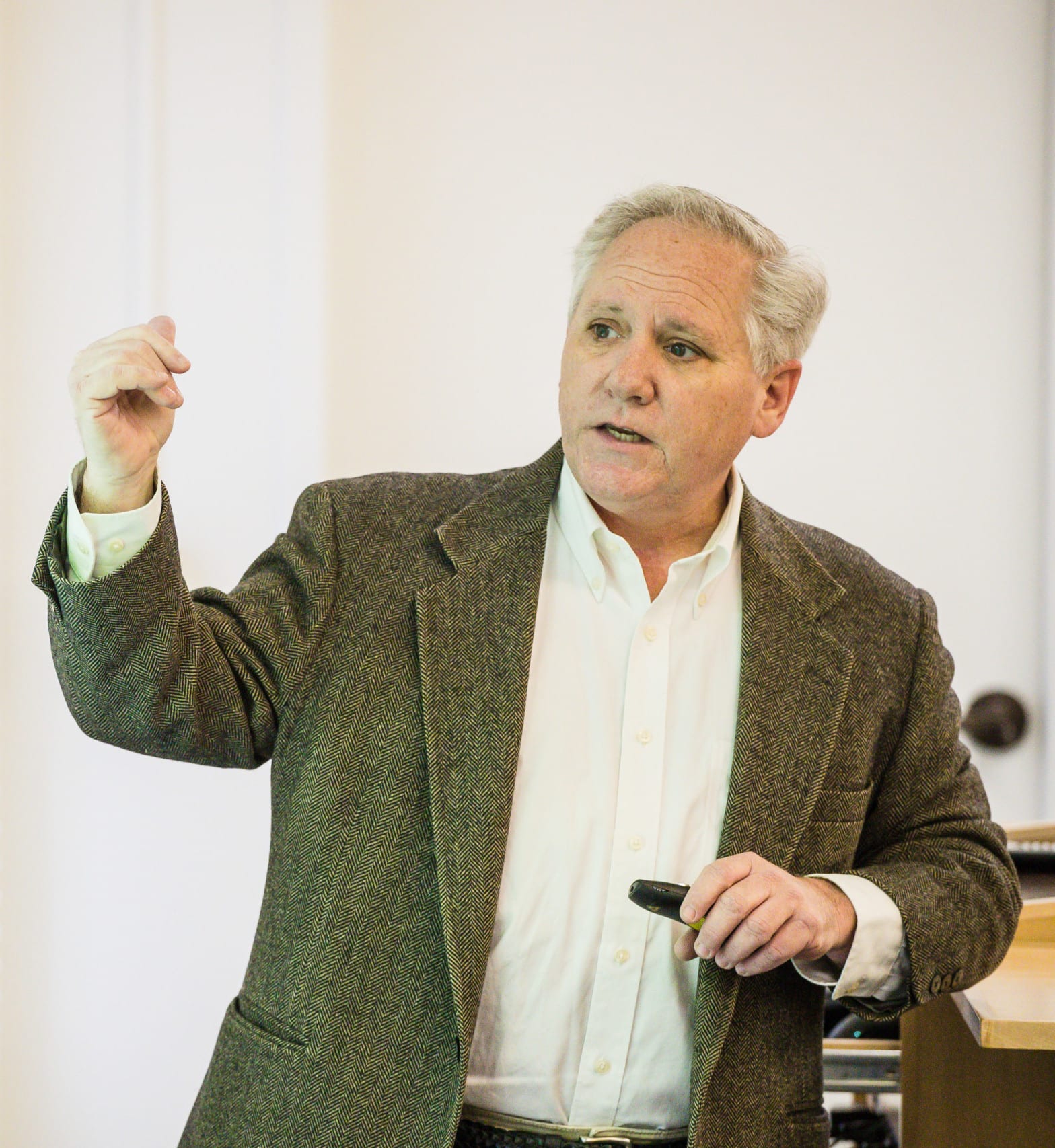Master of Education (M.Ed)
Hybrid

The Master of Education (M.Ed.) at Bushnell University is a non-licensure graduate program designed for educators and professionals who currently hold an Oregon teaching license and want to expand their knowledge and advance their careers. At the conclusion of the M.Ed. program graduates will be eligible for a specialty endorsement in one of four areas.
The M.Ed. program offers engaging, active, social-learning experiences aligned and tailored to your professional goals. This program provides skills to improve instruction and professional practice in a specialized area. You will earn your degree in just 12 months under the guidance of leading professionals in the field.
Credits 30-38* | Cost/Credit $755 | Completion 12 Months (3 Semesters) | Format In-Person | Starts Every July
*This depends on which endorsement is chosen
Graduate Programs
Certificate Programs
Contact
Carrie Gillies
Director of Online & Grad Admission
541-684-7259
cgillies@bushnell.edu
Ray Ricks, M.Ed.
Program Director, School of Education
541-684-7277
rricks@bushnell.edu
Why Choose Bushnell?
The Masters of Education (M.Ed.) is a 36-credit in-person program with evening and online courses during the summer session and is designed for those seeking a master’s degree and a specialty endorsement in the state of Oregon. The program offers engaging, active, social-learning experiences aligned and tailored to your professional goals.
In this program, candidates will learn specialized skills, within a selected area of concentration, that enrich current practices, expand professional knowledge, and create new career opportunities in the field of education. Our coursework is aligned with state and national standards and our program has been approved by Teacher Standards & Practices Commission (TSPC).
Program Overview
The M.Ed. program at Bushnell University allows students to add a specialty endorsement to their current teaching license. Endorsement areas include Special Education, Physical Education (PE), Reading Interventionist, and English for Speakers of Other Languages (ESOL). Students also take courses in educational research, ethics, cultural competency, and leadership. This program provides skills to improve instruction and professional practice in a specialty area.
The M.Ed. program offers engaging, active, social-learning experiences aligned and tailored to your professional goals. You will earn your degree in just 12 months under the guidance of leading professionals in the field.
Program Format
The Master of Education program is 30-38 credits and can be completed in 12 months. Each cohort begins Summer Session 2 (July). Coursework is completed in a hybrid format with classes in the evening and online.
Adding a Specialty Endorsement
Teaching licenses may include multiple endorsements, and teachers may add endorsements to the license at any point during the life of the license.
Requests to add an endorsement require an application and fee as well as other evidence to process. For more information on specific steps to add endorsements to teaching licenses, visit the TSPC website.
Courses
ESOL
For full course descriptions, visit our academic catalog.
For course rotation, visit our M.ed page.
- Research Methods
- Ethics, Values, and Faith Within the Education Setting
- Action Research
- Curriculum Design and Instruction
- Advanced School Law
- Technology as an Instructional Tool
- Introduction to Comparative Linguistics
- ESOL Theory and Methods I and II
- English Grammar and Syntax
- ESOL Teaching Oral and Literate Skills
- ESOL Practicum
Physical Education
For a full course description, visit our course description page.
- Research Methods
- Ethics, Values, and Faith Within the Education Setting
- Action Research
- Exceptional Learners
- Culturally Responsive Teaching
- Curriculum Design and Instruction
- Advanced School Law
- Technology as an Instructional Tool
- Introduction to Movement
- Adaptive Physical Education
- Physical Education Methods
- Physical Education Practicum
Reading Interventionist
For a full course description, visit our course description page.
*Exceptional Learners
- Technology as an Instructional Tool
- Advanced School Law
- Foundations and Current Issues in Literacy Instruction
- Culturally Responsive Literacy
- Best Practices in Reading and Writing
- Emergent Literacy
- Reading/Writing in Content Areas
- Diagnostic Assessments and Application of Reading Research
- Reading Practicum
- Reading Interventionist Practices
*Prerequisite
Special Education
For a full course description, visit our course description page.
- Research Methods
- Ethics, Values, and Faith Within the Education Setting
- Action Research
- Culturally Responsive Teaching
- Foundations of Special Education I
- Foundations of Special Education II
- Foundations of Special Education III
- Interventions for Accessibility and Functional Skills
- Assessment and Evaluation in Special Education
- Advanced Classroom and Behavior Management
- Special Education History and Current Issues
- Academic Instructional Supports and Universal Design for Learning
- Special Education Field Experience I
- Special Education Field Experience II
- Special Education Teaching Experience
Clinical Practices
Students in the Master of Education (M.Ed.) program engage in 90-190 hours of Clinical Practice, depending on the specialty endorsement chosen.
In this school-based clinical practice, candidates work closely with a certified teacher in their concentration area and create a minor work sample with supervised support. Candidates will apply a variety of
research-based practices that reflect the area of specialty and effectively meets the varied needs of diverse student populations.
Out of State Licensure
For more information on out-of-state licensure, visit the TSPC website.
Accreditation
The School of Education at Bushnell University is nationally accredited by the Association for Advancing Quality in Educator Preparation (AAQEP) and regionally accredited by the Northwest Commission on Colleges and Universities (NWCCU). Additionally, the university’s teaching licensure programs are approved by the Oregon Teacher Standards and Practices Commission (TSPC). To learn more, visit our Accreditation page.
Program Objectives
Upon completion of the Master of Education program, candidates will demonstrate:
- Advanced knowledge of the teaching/learning process and demonstrate an exemplary level of competence in all aspects of teaching
- Increased knowledge of content information
- Commitment to professional excellence and professional leadership
- Ethical and professional responsibilities of teachers and an understanding of the teacher’s role as a leader in the community
- Multicultural competencies and advocacy in relation to diversity, equity, opportunity, and achievement in student learning and development
- Strengthened professional identity of each teacher to include the habits of scholarship (use and evaluation of research, participation in research, evaluation of programs)
Admissions Requirements
- A free application for admission
- Official transcripts showing completion of a bachelor’s degree from a regionally accredited college or university, with a minimum undergraduate GPA of 3.0.
- A statement of purpose (two to three pages, double spaced) that clearly indicates career history, professional goals, and professional guiding principles
- Current resume
- One letter of recommendation that specifically addresses the academic ability, work performance, and character of the applicant
- Two Disposition Assessments
- Personal interview with the Admissions Committee
Please complete and return admission pieces via email at: gradadmissions@bushnell.edu or in person/by mail to: Office of Graduate Admissions, 828 E. 11th Ave. Eugene, OR 97401.
Cost of Attendance
Per Semester:
Housing & Food: $5,650
Books & Supplies: $55 per credit
Personal: $700
Transportation: $700
Tech Fee: $175
FAQ's
- How much does the program cost?
The current tuition and fees are listed on our course rotations with reading pdf. The M.Ed program is a total of 30-38 semester credits, depending on the chosen endorsement area. When making plans, prospective students should also consider expenses such as textbooks and a parking pass.
- How long does it take to complete the program?
Students can complete the M.Ed program in just under one year.
- Can I work while doing this program?
Students in the M.Ed. program must make a personal choice about working while pursuing their education. Throughout the program, students will complete coursework on campus, in the evening, in addition to completing their practicum in the school setting. Because schools operate during the hours of a typical workday, students often adjust their work schedules to complete program requirements.
- Is Bushnell accredited?
Yes. The M.Ed program is accredited through TSPC (Teacher Standards and Practices Commission).
Have other questions? Contact our admission counselor for the M.Ed program at 541-684-7201.
Questions?
Carrie Gillies
Director of Online & Grad Admission
541-684-7259
cgillies@bushnell.edu
Ray Ricks, M.Ed.
Program Director, School of Education
541-684-7277
rricks@bushnell.edu
Employers of our Students & Alumni
Here is a sampling of some districts where our current students and alumni are employed:
- Eugene
- Springfield
- Harrisburg
- South Lane School District
Academic Catalog
Academic Calendar
Tuition & Fees / Financial Aid
Military & Veteran Benefits
Pathways in Education Scholarship
Hear From Our Students

Meet the Faculty
Brian Kaelin, Ed.D. Program Faculty
“Bushnell’s M. Ed program enables licensed educators to earn additional endorsements, which expands options for professional service and directly translates into increased compensation.
Additionally, the program allows teachers to deeply explore areas of professional interest while developing skills that can be immediately applied within local and regional classrooms to improve outcomes for students.”
The School of Education Faculty
Tammy Bovee, M.S. Jenee Cazares, M.A. Allyssa Goertzen, M.A. Brian Kaelin, Ed.D. Cindy Nees, M.Ed. Suzanne Price, M.Ed. Ray Ricks, M.Ed. Marilyn Williams, Ed.D.


